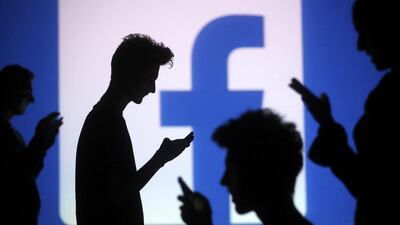I was once addicted to Facebook. But the popular social media platform couldn’t sustain my interest for long. This didn’t result in my closing the account, rather a shorter and more limited profile with a healthy dose of irregular activity, mostly at odd hours to avoid intrusion in my daily life.
A friend, who lives close by and meets me almost every weekend, recently expressed frustration at my reluctance to communicate with him on Facebook, as though meeting in person is not gratifying enough. He accused me of being old-fashioned and introverted. Why did I maintain an account if I wanted to remain dormant, he wondered.
In the course of our conversation he made a general observation that those who continuously seek to relive their past through pictures and posts do not enjoy their present. “They wish that their present is better, or at least as good as their past,” he said.
Irrespective of the veracity of his assertion, he inadvertently answered his own question about my limited presence on Facebook. I don’t want to reveal everything about myself and become a subject of undesired public scrutiny, unlike many.
Countless studies have shown how we are analysed all the time, not just by those we know, but by strangers. The idea that my pictures and posts might be up online as a case study is troubling.
I came across one such website that compared a series of head shots of different individuals to postulate that a single photograph reveals our characteristics such as attractiveness, competence, creativity, extroversion, meanness, intelligence and trustworthiness. Why don’t Facebook users care more about this fact?
Some psychologists believe we are motivated to share content online to feel a greater sense of belonging. They argue that Facebook allows us to connect not only with loved ones, but with our fundamental human needs. It has become a popular destination for millions of us because of its ability to meet our psychological needs, just as supermarkets and grocery stores fulfil our need for physical sustenance.
Thus, individuals with low self-esteem have the most Facebook friends, because they are concerned about their public perception. So says Anita Singh, a Delhi-based psychologist. “The logic is that they want to compensate for low self-esteem by trying to appear popular.”
A study titled Another Brick in the Facebook Wall – How Personality Traits Related to the Content of Status Update conducted by the University of Duisburg-Essen in Germany, found that narcissists posted more frequently about themselves to attract likes and comments that fuel their self-importance. Other researchers have pointed out that narcissistic individuals love selfies and they share those in which they think they look most attractive in hopes of gaining admiration.
Those prone to stress and anxiety seek acceptance by publishing photos. That is another revelation for the current research on social media trends. They are usually poor communicators and lack social skills, says Dr Singh. “Photos are less likely to trigger their anxiety as they are less likely to attract comments they don’t want to see or hear. Nevertheless, they wait anxiously for others’ response to their posts.”
Dr Renna Thomas, clinical psychologist at Aster Medical Centre in Dubai, however, thinks that even though we often willingly expose ourselves, our analysis about others is not always correct.
For instance, she says, those who “make it a point to tell the world whenever they buy a new gadget or visit an exotic restaurant are not necessarily show-offs as we sometimes tend to think. They are perhaps more open-minded than others”.
But what about those who like to maintain an account on Facebook, yet remain discreet? Dr Thomas says some of them may suffer from social anxiety that they may be judged by society, while others may be concerned about their privacy. There is yet another category, who are curious about others, but would not give up too much information about themselves.
The current research is very likely to change as we continue to deepen our relationship with social media platforms like Facebook. But the analysis helps me understand how some might interpret my behaviour on Facebook. For myself, and likely many others, Facebook is great but only up to a point. In this world of constant updates, some things are best left private.
smukherjee@thenational.ae

